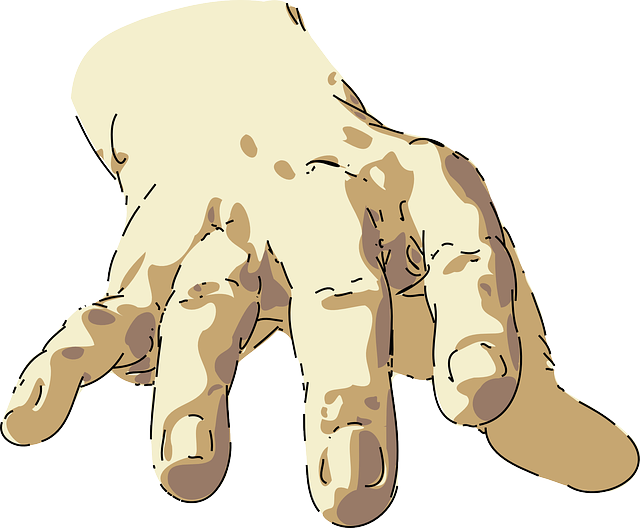 Bad News
Bad News
Bad News; it is all around us. So much so that often we feel like we are drowning in it. In fact, I grew so tired of “treading water” that I quit watching news years ago. When it comes on the radio I switch stations. I am also very selective in regards to what I read. Not that I like being ignorant, but I don’t see the need to be stressed by all of the worlds problems. I have enough of my own thank you. Experience has taught me that ignorance doesn’t make me immune, I’m not that naïve. But why would I seek out bad news when I know it will eventually find me? Instead of being inundated and overwhelmed by bad news, I find that it is better to saturate my mind with Truth and Good news (Philippians 4:8). Since I can’t stop bad news from coming, I should at least be prepared to respond to it properly.
Troubling Headlines
What is the first bad news recorded? Adam and Eve disobeying God. The scoop? Satan enticed Eve to eat the forbidden fruit. Where? The Garden of Eden. How? By claiming that once she did she would be like God, knowing good and evil. Why? Before Adam and Eve ate the fruit they knew only God and good (man is never content). The consequence? Instead of fellowship with God in the Garden, their lives were now marked by banishment, toil & pain. But this was not the end of the story. God had warned Adam that if he ate the forbidden fruit, the result would be death. How must they have felt when their firstborn son killed his brother Abel. The dam was broken, and the world has been flooded with bad news ever since.
Firm Hearts
How do we brace ourselves when the waves come? We fix our hearts on God. Psalm 112:6-7 says, “For the righteous will never be moved; he will be remembered forever. He is not afraid of bad news; his heart is firm, trusting in the Lord.” Peace with God goes a long ways when bad news comes. This Peace only comes when we embrace the Good News of the Gospel.
Because of the disobedience of the first couple, Adam and Eve, the second couple, sin and death, entered this world. The consequence is that every person since then has been born in sin and separated from God. Since we are incapable of being righteous through our own efforts, Jesus had to come and fulfill the Law by living a perfect life and die on the cross on our behalf, bearing the punishment for our sins. Our sins can only be forgiven because of His blood sacrifice on our behalf. Our responsibility is to repent of our sins and place our Faith in the work of Christ.
Good News
“For the wages of sin is death, but the free gift of God is eternal life in Christ Jesus our Lord.” – Romans 6:23
“God shows His love for us in that while we were still sinners, Christ died for us. Since, therefore, we have now been justified by His blood, much more shall we be saved from the wrath of God.” – Romans 5:8-9
“If you confess with your mouth that Jesus is Lord and believe in your heart that God raised Him from the dead, you will be saved.” – Romans 10:9
These are just a few of the many passages containing the Good News of the Gospel. Psalm 111:10 says, “The fear of the Lord is the beginning of wisdom; all those who practice it have a good understanding.” Our fear (respect & reverence) for God is foundational for a proper perspective. As Christians we recognize that “our citizenship is in Heaven” (Philippians 3:20) and so is our Treasure (Matthew 6:19). We also recognize that our lives are but a mist (James 4:14) but death ushers us into eternity (1 Peter 1:23). When bad news comes, a proper perspective requires an eternal outlook and Faith in a Sovereign all powerful God.
“For God alone, O my soul, wait in silence, for my hope is from Him. He only is my rock and my salvation, my fortress; I shall not be shaken. On God rests my salvation and my glory; my mighty rock, my refuge is God.” – Psalm 62:5-7.
Proper Perspective
Want a proper perspective on bad news? Get right with God and place your trust in Him. Job lost his property and his children but not his faith. What was his response to bad news? “Naked I came from my mother’s womb, and naked shall I return. The Lord gave, and the Lord has taken away; blessed be the name of the Lord” (Job 1:21).
“The Lord is my light and my salvation; whom shall I fear? The Lord is the stronghold of my life; of whom shall I be afraid?” -Psalm 27:4
The bad news will keep coming in waves. Are you standing on the Rock?
 “The eye is the lamp of the body. So, if your eye is healthy, your whole body will be full of light, but if your eye is bad, your whole body will be full of darkness. If then the light in you is darkness, how great is the darkness!” – Matthew 6:22-24.
“The eye is the lamp of the body. So, if your eye is healthy, your whole body will be full of light, but if your eye is bad, your whole body will be full of darkness. If then the light in you is darkness, how great is the darkness!” – Matthew 6:22-24. Miracle Lessons
Miracle Lessons
 To Be Content
To Be Content
 Sparks
Sparks